Biography of Mirza Kuchak Khan
Mirza Yunes, known as Mirza Kuchak Khan, was born in 1880 in the Ostad Sarai neighborhood of Rasht. He grew up in a religious family, and his father, Mirza Bozorg, was one of the Rasht clerics. Because of this, people named him Mirza Kuchak from childhood, and then Kuchak Khan or Kuchak Jangali. According to the sayings, He was strong, athletic, had a handsome face, and was raven-eyed. Moreover, socially, he was a humble, faithful, righteous man who did not hesitate to support justice. He also used every chance to be the voice of the oppressed and voiceless. During his life, he refrained from consuming alcohol and tobacco and chose a wife in his last years.
Kuchak Khan completed his early education in Saleh Abad and Jame School in Saleh Abad, Rasht. After that, he went to Qazvin and studied seminary courses at Salehiye School. Then he came to Tehran and continued his education at Mahmoudieh School. According to Reza Mozafari in the book of Gilan celebrities, Mirza Kuchak Khan had reached a level where he could become a cleric. But the developments in Iran at that time changed his life. He spent most of his education under Master Khalkhali, who had a strong influence on him and caused him to enter a new path. Master Khalkhali was a well-spoken man, so his words had a significant impact on every audience.
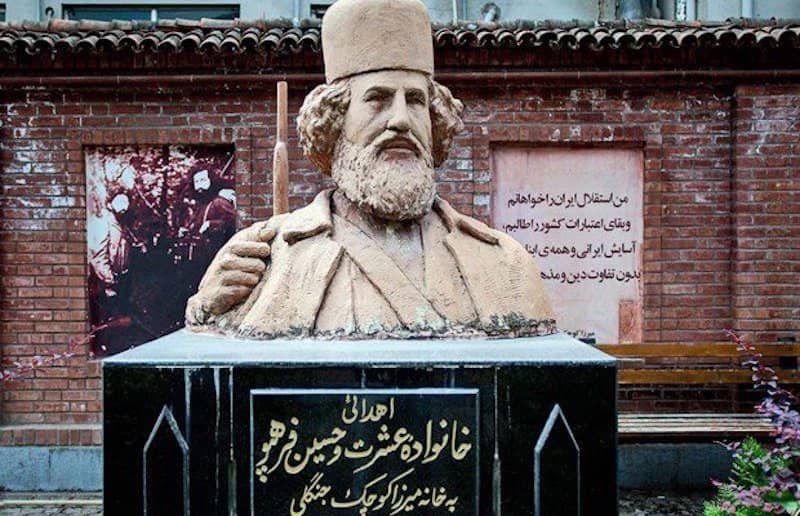
The Freedom-Seeking Spirit
While living in Tehran, Kouchak Khan became more familiar with the social conditions of that time. After reviewing the events, he concluded that the time had come to inform people about the current situation. So, he went to Rasht (Gilan) and started preaching enlightenment among his friends and acquaintances, especially the students of Haji Hassan school. After the murder of a freedom fighter in Tehran, Mirza intensified his campaign using that incident to arouse people’s feelings. He, then, founded an association called “Clerical Assembly” to fight against the autocracy and chaos of that time.
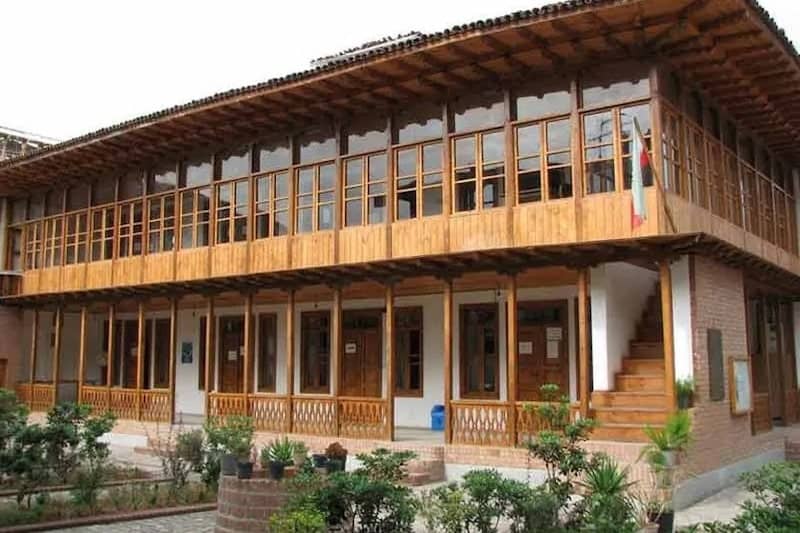
Creation of The Jungle Movement
In 1908, Mirza Kuchak Khan joined the group of freedom fighters in Gilan and went to Tehran to suppress Mohammad Ali Shah (the sixth king of Qajar). At that time, chaos and disorder were everywhere. In such a situation, Mirza, along with the force he had joined, created the Jungle Movement. Shortly, it became one of the most popular local movements in Iran and its goal was to gain independence and freedom while preserving and protecting Iran’s borders.
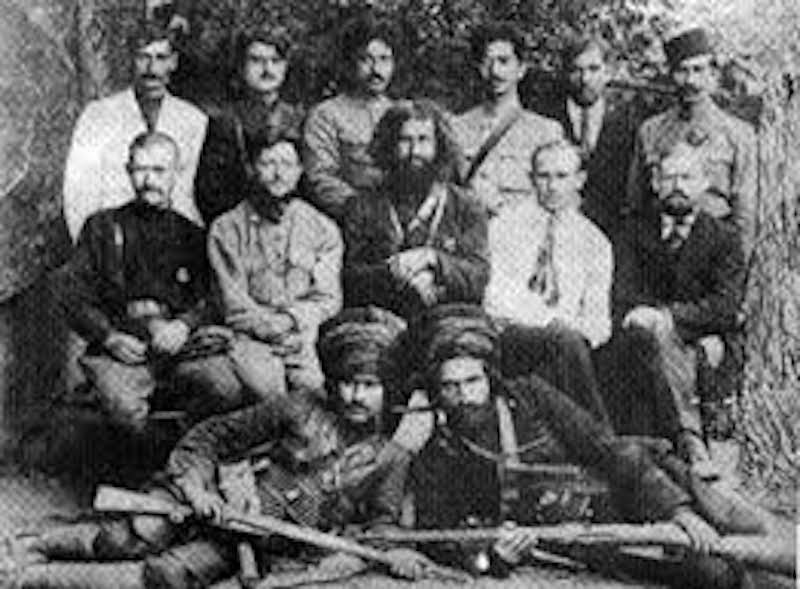
Intellectuals who were tired of living in injustice joined Kuchak Khan in this movement to fight against unfairness. Thus, on June 5, 1950, Mirza and his allies announced the republican government in Rasht by issuing a statement.
On May 18, the forces of the Red Army entered Anzali to suppress the counter-revolutionary actions lurking in the north of Iran. Meanwhile, the movement of Mirza Kouchak Khan opposed them. In the meantime, Mirza and the Russian military and political forces agreed. Due to the agreement, each of them would pursue their own goals with military actions and not have an aggressive view of each other.
Creation of the Edalat Party
After the Red Army entered Iran, several members of the “Baku Justice Communist Party” also entered Gilan from Russia. After several meetings, they formed a party called Edalat. Contrary to the established agreements of the party, they started spreading propaganda against Mirza Kuchak Khan.
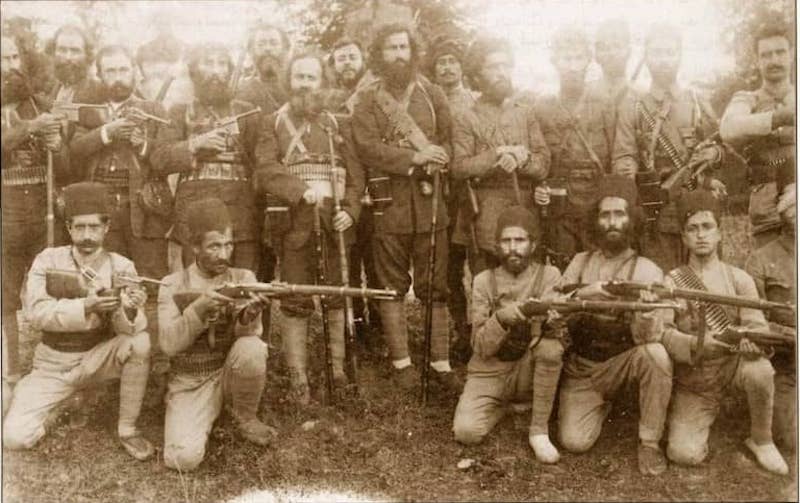
The members of the Edalat Party, some of whom, like Ehsanollah Khan and Khalo Qurban, were close friends of Mirza. They tried their best to kill or arrest him so that he would withdraw from the leadership of the revolution. Mirza Kuchak Khan understood the purpose and plans of the party members, so he went to the forest. This way, many forest rangers were arrested, killed, and lost their weapons and property.
But because they could not defeat Mirza, it caused the parties temporarily made peace. On the eve of Reza Khan’s coup (the founder of the Pahlavi dynasty), the political conditions of Iran were severely against Mirza Kuchak Khan. Also, the Russians left him alone and only thought of their interests in Iran.
Personality Traits of Mirza Kuchak Khan
Reverend Charles Mary, a Christian missionary living in Rasht, commented on the personality traits of Mirza Kuchak Khan as follows. While describing him, he used words such as honest, patriotic, and conscientious. His fans respected him not just because of his gallantry in war, but because of his kindness, fairness, and truth-seeking personality. Mahdi Malekzadeh, the author of the book “Constitutional Revolution” praises Mirza as a true mujahid who believed in constitutionalism. And he writes that Mirza was not only a soldier who fought for independence, but also a missionary of freedom that did not fail to encourage people to seek justice and human rights in any circumstances.
Martyrdom of Mirza Kuchak Khan
After the surrender of Khalo Qurban, the government forces entered Rasht, and since the peace talks with the Jangalis failed, the government forces went after the Jangalis. While Mirza had lost many forest companions on the way, in the mountains of Talesh, together with his only loyal friend, Gaouk, a Russian-German revolutionary adventurer known as Hushang, got stuck in a storm and frostbite. Finally, one of the men of Mohammad Javad Khan Salar Shuja killed and cut off his head.
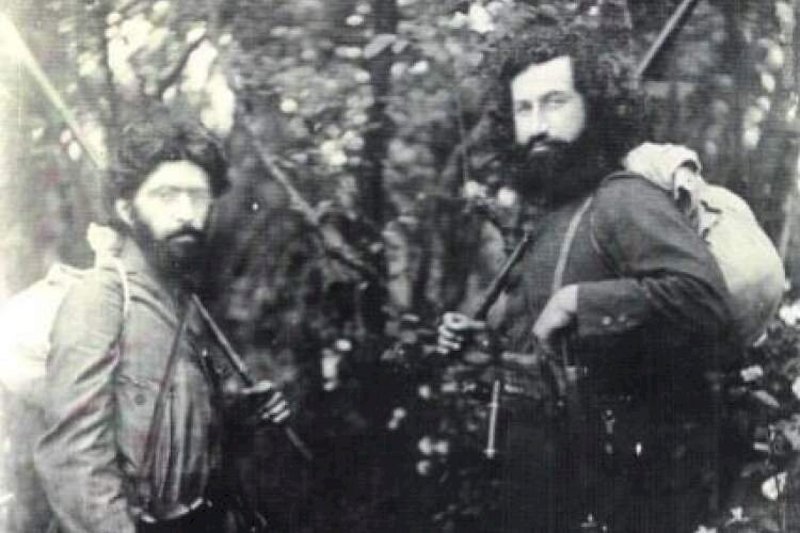
Finally, after seven years of struggle and going through many ups and downs, the Jungle Movement ended in 1921 with the martyrdom of Mirza Kuchak Khan. The severed head of Mirza, this national hero and forest commander, was brought to Rasht, handed over to the barracks commander, and displayed next to the barracks for a long time. But sometime later, one of Mirza’s friends secretly stole his head and buried it in Soleymandarab, Rasht.

